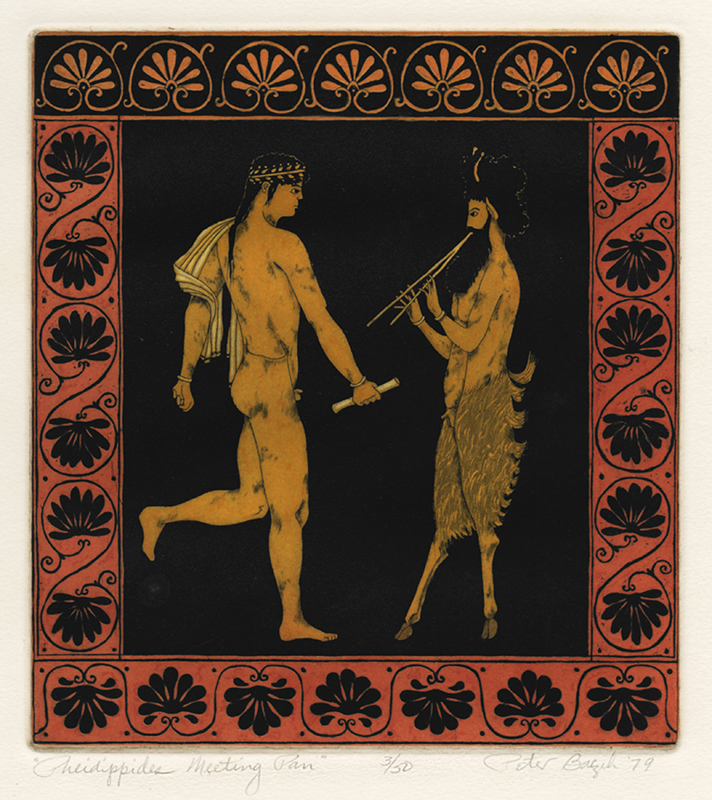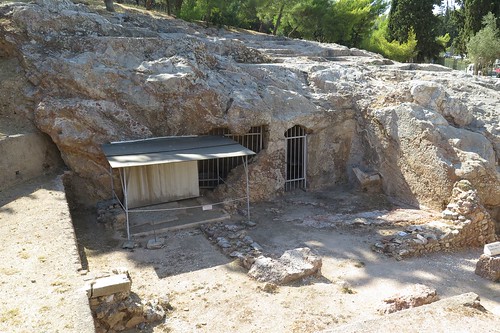
I went out to have a look at the people running the Dublin City Marathon this morning as they came through Stoneybatter. I think Marathon runners are barking mad but you have to admire the effort they put in. Sadly I managed to miss all the people I know who were taking part.

 If you know anything about marathons you have probably heard the story of the original marathon. In 490 BC the Persians had their first go at invading Greece, but were defeated at the battle of Marathon by the people of Athens. After the battle, the Athenians feared that the remaining Persians would sail around the coast to Athens and trick the Athenians into letting them into the city by pretending to have won the battle. To forestall this, Pheidippides ran the 26 miles from the battle site to Athens, informed the citizens that the battle had been won, and then died of exhaustion. In honour of Pheidippides the first modern Olympic games introduced the marathon race, with Spyridon Loues of Greece emulating his forebear by winning the race (he managed not to die of exhaustion).
If you know anything about marathons you have probably heard the story of the original marathon. In 490 BC the Persians had their first go at invading Greece, but were defeated at the battle of Marathon by the people of Athens. After the battle, the Athenians feared that the remaining Persians would sail around the coast to Athens and trick the Athenians into letting them into the city by pretending to have won the battle. To forestall this, Pheidippides ran the 26 miles from the battle site to Athens, informed the citizens that the battle had been won, and then died of exhaustion. In honour of Pheidippides the first modern Olympic games introduced the marathon race, with Spyridon Loues of Greece emulating his forebear by winning the race (he managed not to die of exhaustion).
 The only problem with the story of Pheidippides running to Athens to bring word of victory is that it is almost certainly a complete fiction. The only ancient source for it is in the writings of Lucian of Samosata, who wrote some 600 years after the battle. Surviving sources that are much closer to the event do not mention Pheidippides running to Athens; writing around 60 years later Herodotus actually says that the entire Athenian army hurried back to the city, with no runner sent ahead.
The only problem with the story of Pheidippides running to Athens to bring word of victory is that it is almost certainly a complete fiction. The only ancient source for it is in the writings of Lucian of Samosata, who wrote some 600 years after the battle. Surviving sources that are much closer to the event do not mention Pheidippides running to Athens; writing around 60 years later Herodotus actually says that the entire Athenian army hurried back to the city, with no runner sent ahead.
 Herodotus does however mention Pheidippides, who seems to have actually been a runner. His story is so bizarre that I feel it should be better known. Before the battle of Marathon, he ran from Athens to Sparta (c. 240 kilometres) in two days to seek the aid of the Spartans. The Spartans were unfortunately unable to help because they were enjoying a religious festival (a recurring theme), so Pheidippides had to run back home to tell the Athenians that they were on their own. On arriving back in Athens however, he reported that as he ran over the Tegean mountains he met none other than the god Pan. Pan called Pheidippides by name and then asked why the Athenians did not honour Him, despite the fact that He was friendly towards them, had aided them in the past, and would do so again in the future. The Athenians took heed of Pheidippides' message. After defeating the Persians, they erected a shrine to Pan and honoured Him each year with an annual ceremony.
Herodotus does however mention Pheidippides, who seems to have actually been a runner. His story is so bizarre that I feel it should be better known. Before the battle of Marathon, he ran from Athens to Sparta (c. 240 kilometres) in two days to seek the aid of the Spartans. The Spartans were unfortunately unable to help because they were enjoying a religious festival (a recurring theme), so Pheidippides had to run back home to tell the Athenians that they were on their own. On arriving back in Athens however, he reported that as he ran over the Tegean mountains he met none other than the god Pan. Pan called Pheidippides by name and then asked why the Athenians did not honour Him, despite the fact that He was friendly towards them, had aided them in the past, and would do so again in the future. The Athenians took heed of Pheidippides' message. After defeating the Persians, they erected a shrine to Pan and honoured Him each year with an annual ceremony.
I have seen this shrine myself, so Herodotus's story must be true.

images, other than my own:
Spyridon Loues (Wikipedia)
Pheidippides bringing word of victory to Athens, by Luc-Olivier Merson (Wikipedia: Phedippides)
Pheidippides meeting Pan, by Peter Baczek (The Annex Galleries)